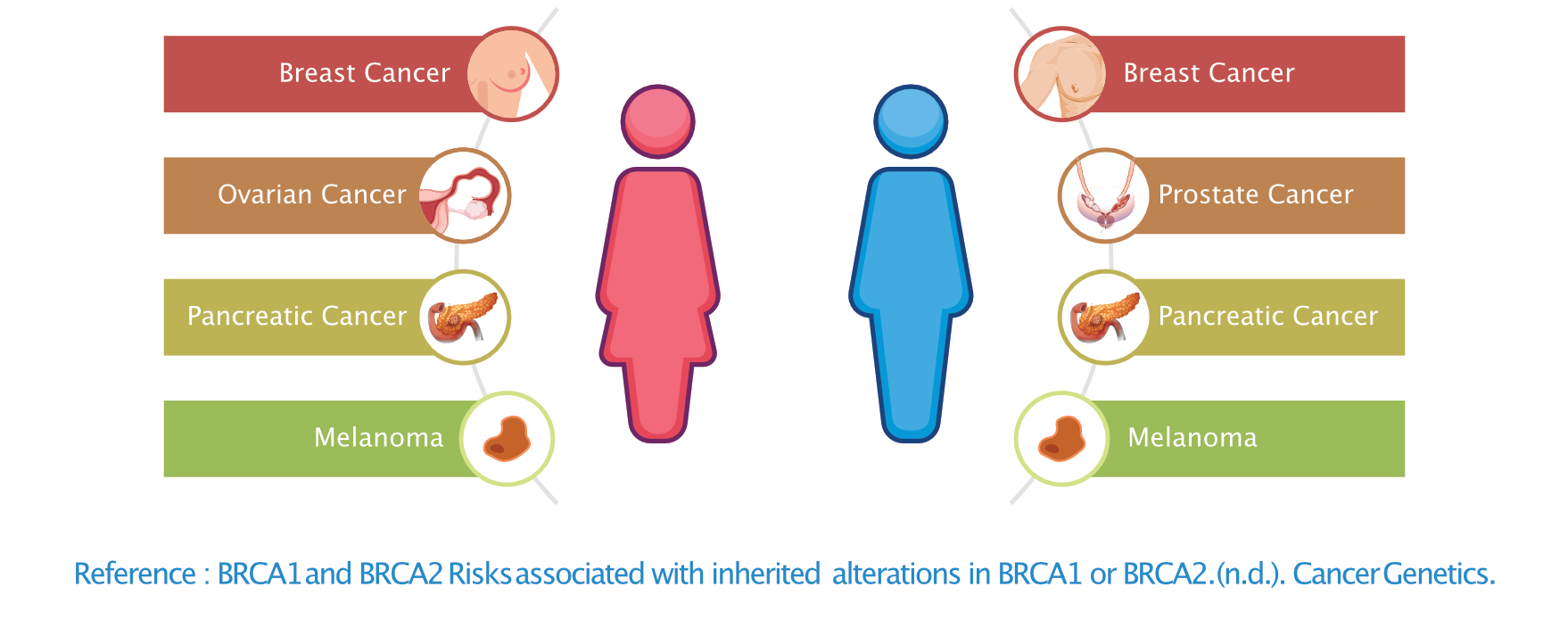Exploring BRCA beyond what we know

Dr. Kripa Bajaj
Consultant - Medical Oncologist Basavatarakam Indo-American Hospital, Hyderabad, India
This case demonstrates the importance of genetic testing in individuals presenting with non-classical syndrome like history.
Clinical Presentation
The proband, 71 years old had a history of presentation with multiple metachronous tumors: Non-Hodgkin’s lymphoma (Age of onset: 61 years), prostate cancer (Age of onset: 67 years) and sigmoid colon cancer (Age of onset: 69 years). He had a family history of head and neck malignancy in the father and brain malignancy in the brother. As per literature available, the personal and family history does not fit into any classical hereditary cancer syndrome. In view of multiple tumors in self and family history of cancers, he was referred for a Germline + test by the clinician to understand if any hereditary aspect is involved in this rare presentation.

GENETIC TEST REPORT INTERPRETATION AND DISCUSSION
Germline + testing done for the proband identified a pathogenic variant (c.5722_5723delCT) in BRCA2. Germline mutations in BRCA2 are seen in approximately 35% of families with multiple cases of female breast cancer, and they are also associated with an increased risk of male breast cancer, ovarian cancer, prostate cancer, and pancreatic cancer. A small percentage of BRCA2 germline mutations, i.e 8.37% are also in colorectal adenocarcinomas. Although there are very few reports associating Non-Hodgkin’s lymphoma, head and neck and brain malignancies to BRCA2. (PMID: 12691152, 26614708).

BRCA genes have always been associated with a set of 4-5 cancers, as listed above. But it is important to understand that since our Indian population genomes are not well studied, this spectrum of BRCA associated cancers can be very different for our population. The key takeaway from this case is that germline genetic testing should be offered to all patients presenting with multiple primary tumors, irrespective of the age of the patient. Genetic testing can help identify the gene involved, consequently helping the individual and his family to manage their risk of cancers in the future.
Authors: Divya Uchil, Nasreen Parween, Saranya Rangan

 Kindly fill the form below to download our Liquid Biopsy Portfolio brochure :
Kindly fill the form below to download our Liquid Biopsy Portfolio brochure :